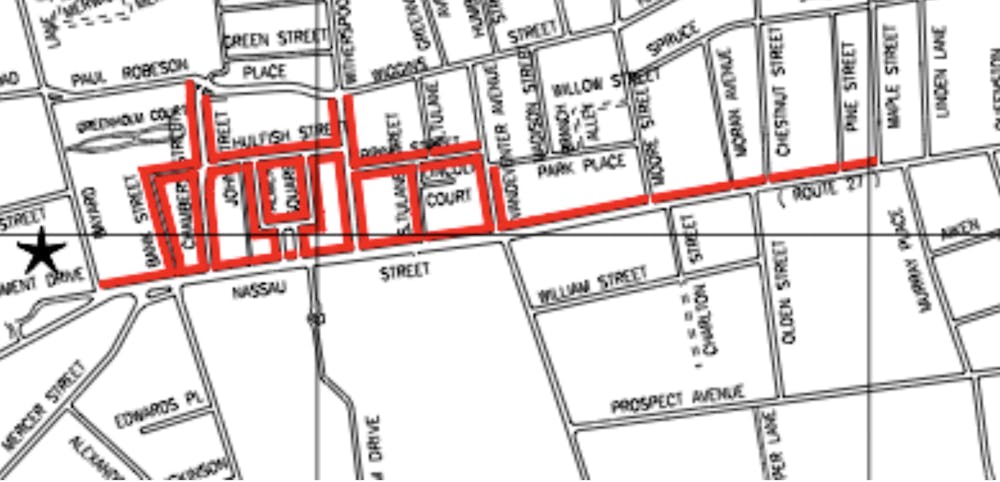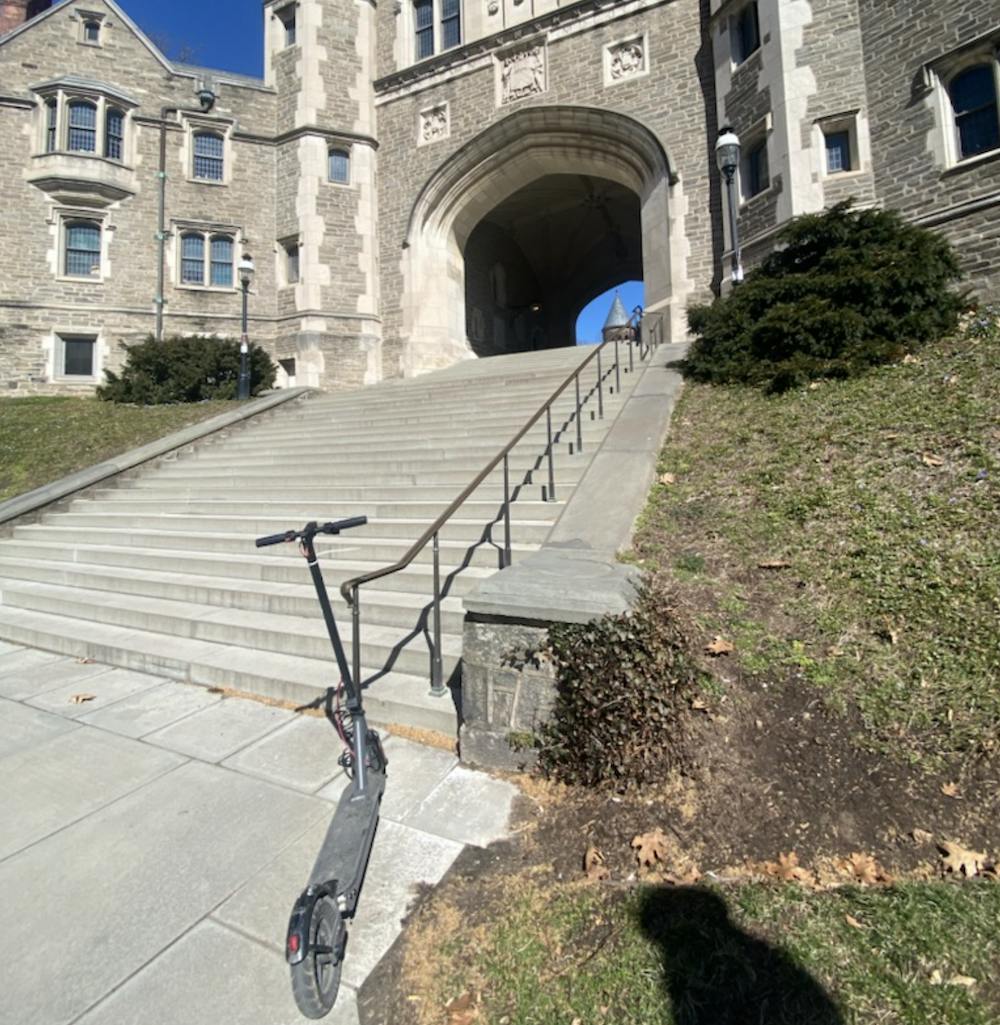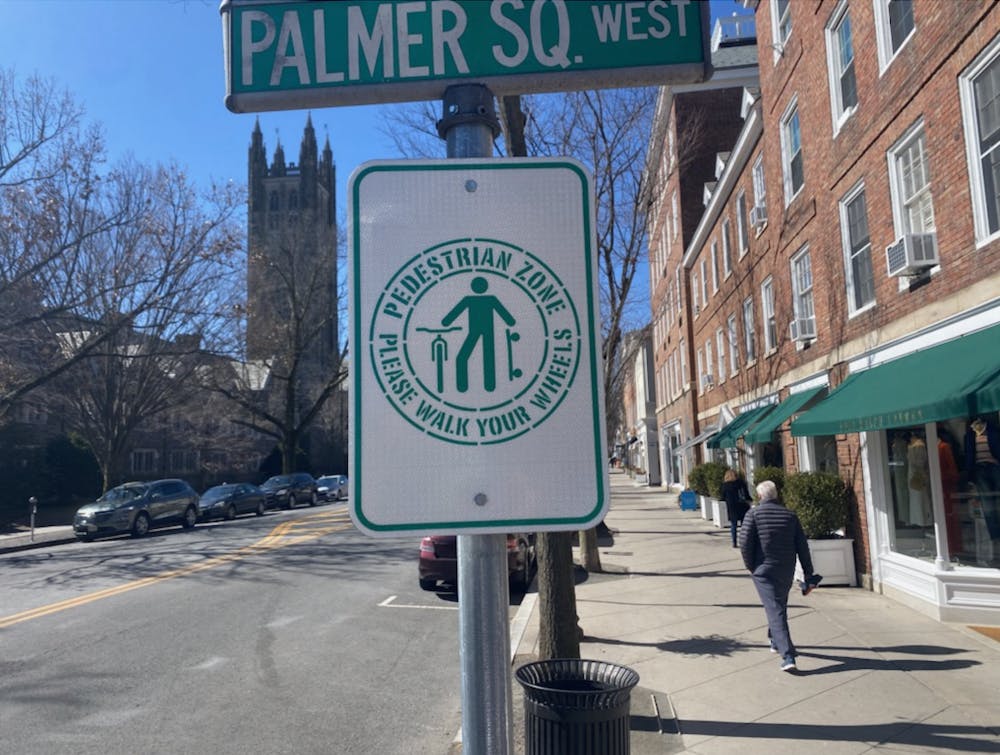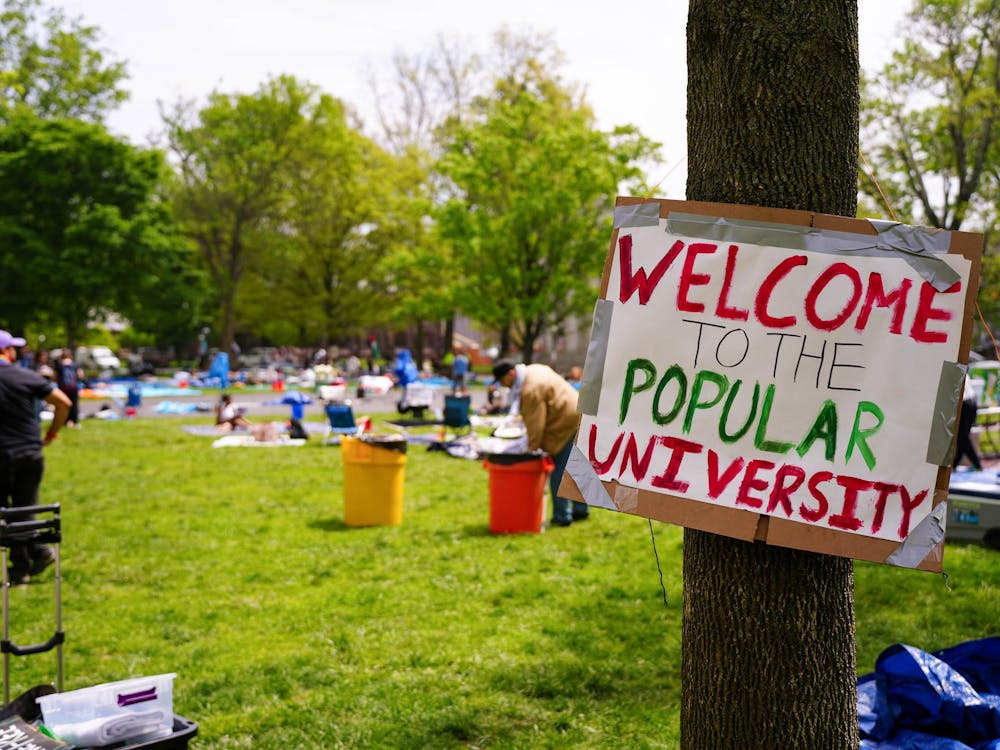Princeton police are issuing a $50 fine to those caught riding scooters on public sidewalks, enforcing long-standing policy that defines a scooter as a “skateboard” under Princeton’s municipal code.
The legislation in question, Ordinance 2022-41, was passed unanimously in a town council meeting held last December. The amendment clarified zones where the use of bicycles, skateboards, and roller skates was previously prohibited by a 1974 ordinance, including on Witherspoon Street, between Nassau Street and Paul Robeson Place, the north side of Nassau Street between Bayard Lane and Maple Street, and Palmer Square.

Zones in Princeton where the use of bikes, skateboards, and roller skates are prohibited.
Courtesy of David Cohen
At that time, Mayor Mark Freda told The Daily Princetonian that “We’re getting a lot of complaints from people about nearly getting run over by people on scooters and electric bikes and sidewalks doing 40 miles an hour and not slowing down.”
Councilmember David Cohen, who serves as a liaison with the Pedestrian and Bicycle Advisory Committee, confirmed that “no actual crashes” have been reported.
In a statement sent to the ‘Prince,’ Cohen claimed that the ordinance applied not only to bicycles, skateboards, and roller skates, but also to “scooters … hoverboards, segways … and any other wheeled conveyance.”
While these vehicles may pose similar risks to pedestrians as those banned, namely, bicycles, skateboards, and roller skates, they are not mentioned in the ordinance. Nor does the legislation include language suggestive of broader application, or enforcement beyond the vehicle types explicitly banned.
When asked to clarify this point, Cohen directed the ‘Prince’ to the Municipality of Princeton Borough Code, which defines “skateboard” as a “device having two or more wheels on which a person can stand with one foot or two feet and can propel himself forward with one foot or move downgrade by force of gravity.”
Cohen noted: “Scooters and Segways clearly fall under this definition. Hoverboards are a bit more questionable,” but acknowledged that “it would be helpful to expand the definition to clearly include all wheeled conveyances aside from wheelchairs, which should be explicitly exempted.”
As a form of traffic regulation, enforcement of this ordinance is under the purview of the Princeton police department. Cohen shared that “[The] first course of action is to educate and inform the public, second to issue warnings, and if all else fails, to issue a summons,” Cohen wrote, noting that “violators should be aware that they may be subject to enforcement at any time.”

The ‘Prince’ received several reports of University students riding scooters who were not issued a warning for first-time violations, even upon request. Citations can be contested in municipal court.
On Monday, Mikey Graham ’25 took his scooter to get lunch at Tacoria on Nassau Street. He was stopped by a police officer on his way back to campus, after riding his scooter from the bike rack to the crosswalk.
Graham recalled telling the officer that he had “No idea” about the ordinance, but said, “I would have thought it was fair to give warnings but they were adamant about giving me the fine.”
Graham also noted “disappointment” that the new ordinance hadn’t been more clearly communicated. The University has not issued official messaging to students regarding the enforcement of the scooter ban in town.
Fletcher Block ’25, who regularly uses a scooter for transportation around campus and in town, echoed this sentiment. He shared that he heard about the ordinance “through a friend” but otherwise “would have had no idea.”
“The University does not wish to surprise students with any new or significant change in policy, institute needless regulations, or limit mobility options for students or the broader University community,” said Director of Transportation and Parking Services (TPS) Charles Tennyson.
“It is important to note that the municipality of Princeton has very clear rules about where personal mobility devices, including bikes and scooters, can and cannot operate. Most sidewalks are off limits for rolling devices and all users should dismount,” he said.
“This is not a new policy,” he added.

Scooter locked by Blair Arch on Princeton’s Campus.
Tess Weinreich / The Daily Princetonian
“E-devices are currently permitted on all University roads, walks, and pathways, with the requirement that all personal e-device users yield to pedestrians at all times,” Tennyson told the ‘Prince.’ In 2020, the use of scooters on campus was prohibited in all academic, administrative, and athletic buildings.
The University has taken independent steps to enhance the regulation of scooters and other e-devices on campus. Students have been required to register all mobility devices with the University, since 2020. However, compliance is not universal.
“TPS hopes to have an enhanced registration system in place by Fall 2023,” Tennyson shared.
The University’s current policy for scooter and e-device use can be found on the TPS website.
Tess Weinreich is an associate News editor at the ‘Prince.’
Please direct any corrections requests to corrections[at]dailyprincetonian.com.









